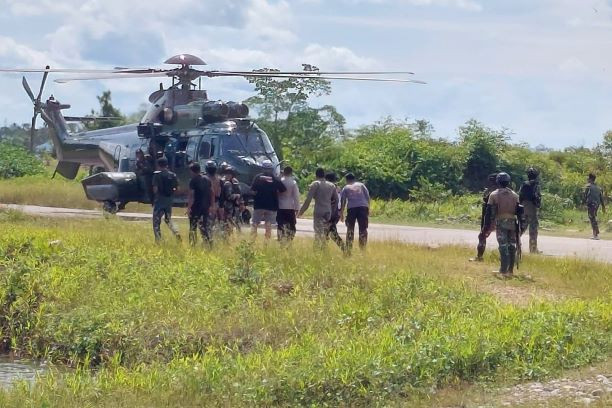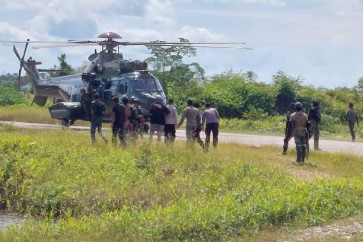Popular Reads
Top Results
Can't find what you're looking for?
View all search resultsPopular Reads
Top Results
Can't find what you're looking for?
View all search resultsLesson learned from the kidnapping in Papua
If the state can improve the conditions of the displaced people in Nduga, it will be able to regain trust among the Nduga people and the TPNPB to find a solution to rescue the hostage.
Change text size
Gift Premium Articles
to Anyone
T
he abduction of Susi Air pilot Phillip Mehrtens of New Zealand by the West Papua Liberation Army (TPNPB), the armed wing of the Free Papua Movement (OPM), in Paro district in the Papua highland regency of Nduga has received wide attention from within and outside Indonesia.
As local media reported, the TPNPB stormed the small Susi Air plane after it landed, set it on fire and took the pilot hostage. The pilot was then taken to the insurgent group’s stronghold area to be used as “political leverage”. The central government responded by deploying a search and rescue team that so far has found difficulties in locating the pilot.
The joint security task force has evacuated 15 workers building a nearby health center whom the insurgent group intimidated and asked to leave Paro. Indigenous Papuans who have witnessed the long-running battle between the armed group and the security forces had to flee their villages.
The New Zealand government has relied on its counterpart to find, evacuate and bring its citizen home. The local police have sent a team of local figures to negotiate with while preparing a “special operation” led by the Indonesian Military (TNI) to crush the armed group if negotiations fail.
Many political commentators and human rights defenders have highlighted concerns about the abduction, that it merely reflects a clumsy decision made by the insurgent group and that it could lead to the possibility of tighter control over Papuans and Papua. The kidnapping also proves the state’s approach remains ineffective in providing security to civilians in the remote territory.
What can we learn from the kidnapping?
First, the state has overlooked the escalation of violence in the Papua highlands, known as the stronghold of the OPM. The kidnapping is part of the TPNPB’s agenda, which has received a minimal response from the state to prevent such a thing from happening.



















